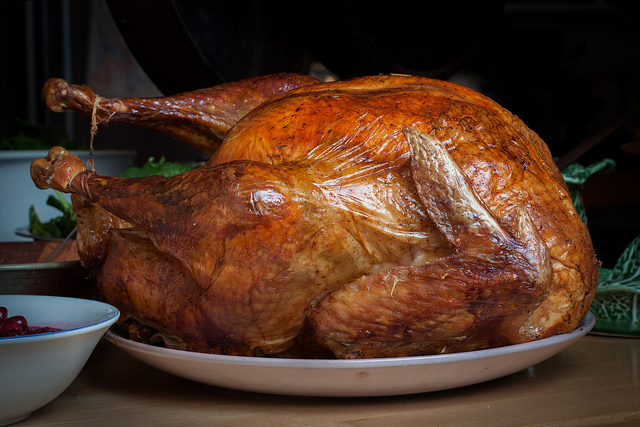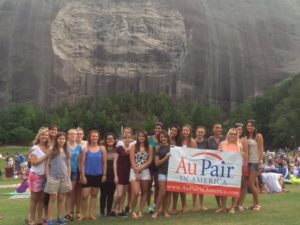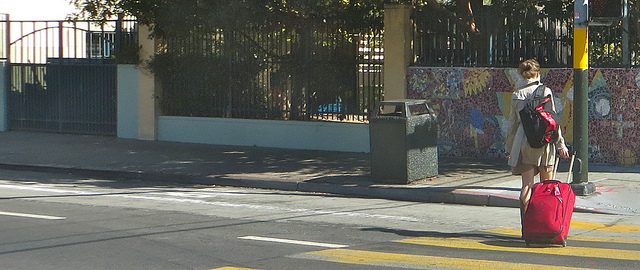Shared from the East Cobb, GA Patch
Georgia’s New Year’s Meal: Pork, Greens And Black-Eyed Peas
Here’s why we eat what we do on New Year’s Day — plus a greens recipe from Chef Kevin Gillespie’s restaurant, Revival.
ATLANTA, GA — On New Year’s Day in Georgia, there’s little question what will be on many folks’ dinner tables.
In Italy, they’ll eat lentils. Japanese kitchens will be serving up Soba noodles and folks of Scandinavian origin will be wolfing down pickled herring. But, in the American South, it’s pork, greens, corn bread and black-eyed peas that will be filling the bellies of hungry New Year’s revelers.
But how did we come by this specific meal? Well, separating fact from fiction when tracking down traditions can be tricky business. But here’s a look at what we know about the Southern New Year’s meal.
Pork
In the South, we are not alone in making pork a New Year’s staple. Folks all over the country, with ancestors from all over the world, make some variation of this dish.
Why? Many believe it’s because pigs root forward — toward the future — unlike, say, a chicken, which scratches backward, toward the past.
“And sauerkraut with pork was eaten for good luck on New Year’s Day, because, as the (Pennsylvania) Dutch say, ‘the pig roots forward’,” wrote historian William Woys Weaver wrote in “Sauerkraut Yankees,” a Pennsylvania Dutch cookbook with recipes dating back to 1848.
There may be a seasonal reason for this tradition, too. Throughout history, pigs would have been butchered in the fall, when the weather was cooler, meaning there would be plenty of fresh cuts come the new year.
Black-Eyed Peas
According to one popular story, black-eyed peas became a symbol of luck in the South during the Civil War. According to this legend, during Union Gen. William T. Sherman’s march toward Savannah, his troops confiscated all the food they could find, but ignored black-eyed peas because they were considered animal feed.
That made them one of the only edible foods left behind and, therefore, a “lucky” food.
Some historians, though, question that story. The peas originated in West Africa and were introduced in the Southern United states around the 17th Century, so the association could have African roots. Hoppin’ John, the combination of seasoned black-eyed peas and rice, almost certainly has its roots in that region.
And, another theory suggests the tradition sprung from early Southern Jewish communities because of the peas’ similarity to a food mentioned as a New Year’s meal in the Talmud.
Greens
We’re usually talking collard greens here, although mustards or turnips will do. But, greens are a Southern New Year’s staple, for sure.
Pretty much everybody at least agrees on what this one means — green means money and eating greens at the beginning of the year means you’ll have a prosperous 365 days ahead.
“Some folks consider the black-eyed peas to represent coins and the greens to represent folding money, a la cash, while others simply consider it general good luck to eat them,” Dan Gillotte, chief Executive Grocer at Austin, Texas’s Wheatsville Food Co-Op, said to Mic.com.
Cornbread
Cornbread has the least documented origin story among the New Year’s Day meal selection. The general consensus is that the golden carb represents real gold — another omen for financial success in the coming year.
We suspect it might actually just be that cornbread is delicious with greens, black-eyed peas and pork. And that’s just fine by us.
If all this has got you hankering to make your own New Year’s meal, Revival— chef Kevin Gillespie’s Southern-style restaurant in Decatur — was kind enough to share their recipe for smokped greens with Patch. Let us know if you whip up a batch!
Revival’s Hickory-Smoked Local Greens
- 1 qt. double chicken stock
- 1 large sweet onion (baseball sized)
- 1 head garlic, peeled
- 1 big pinch dried red pepper flakes
- 1 big pinch salt
- 1 big pinch ground black pepper
- 1 lb. butter, cut into small chunks
- 2 Tbsp. apple cider vinegar
- 3 bunches greens (collards, black kale, Siberian kale, mustard greens, turnip greens)
- Bring stock to just under a boil in a large pot over medium-high heat. Peel and slice onion very thin (use a mandolin if available). Add onion, garlic, red pepper flakes, salt and black pepper to stock. Using an immersion blender, add butter one piece at a time. This will emulsify and look creamy. Add vinegar. Taste and adjust seasoning as needed. It should seem aggressively seasoned. Pour liquid into a semi-shallow heat-proof dish (preferably metal).
- Separately, blanch and shock the greens of your choice (a blend is great). Squeeze out excess water.
- Add the greens to the liquid, really packing them in as they get smaller. The liquid should just barely cover the greens.
- Put the dish above a wood-burning grill. The grill should stay around 180 degrees. Cook for 6 hours, stirring periodically to be sure the greens on the bottom get stirred up to the top. Cool greens in the liquid overnight (Do not skip this step!). Warm up the greens and liquid serve.


 Homesickness can be a problem during the holidays, even if it hasn’t been at any other time of the year. Au pairs often miss their friends and family, familiar places and their own traditions and customs. The holiday activities in the United States seem, and may actually be, different just at a time when an au pair would welcome something familiar.
Homesickness can be a problem during the holidays, even if it hasn’t been at any other time of the year. Au pairs often miss their friends and family, familiar places and their own traditions and customs. The holiday activities in the United States seem, and may actually be, different just at a time when an au pair would welcome something familiar. 
 Almost everyone experiences homesickness and culture shock to some degree, when they come to live in a completely new environment. So much is different and it takes time to adjust.
Almost everyone experiences homesickness and culture shock to some degree, when they come to live in a completely new environment. So much is different and it takes time to adjust.
 Dehydration means that the body lacks the necessary amount of fluid. Infants and small children are more likely to become dehydrated than older children or adults, because they can lose relatively more fluid quickly.
Dehydration means that the body lacks the necessary amount of fluid. Infants and small children are more likely to become dehydrated than older children or adults, because they can lose relatively more fluid quickly.
